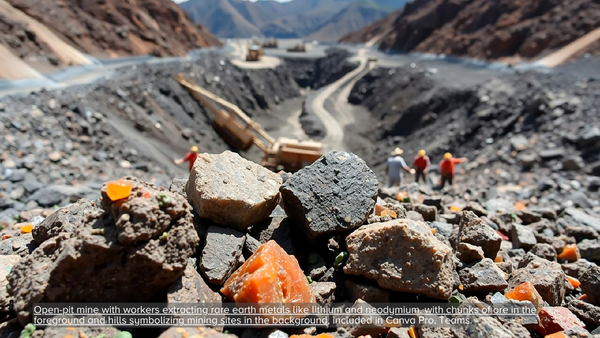Massive CRT import, a lack of proper recycling policies and inadequate implementation processes have made India a CRT dumping ground, points out the Toxics Link’s latest publication “Looking Through Glass-CRT Glass Recycling in India”. CRT or Cathode Ray Tube, more popularly called the ‘picture tube’, is generally used in TV’s and computer monitors and contains large amounts of lead, which has immense impact on health and environment.
Massive CRT import, a lack of proper recycling policies and inadequate implementation processes have made India a CRT dumping ground, points out the Toxics Link’s latest publication “Looking Through Glass-CRT Glass Recycling in India”. CRT or Cathode Ray Tube, more popularly called the ‘picture tube’, is generally used in TV’s and computer monitors and contains large amounts of lead, which has immense impact on health and environment. It’s one of the most hazardous e-wastes, as pointed out by the international community during Basel Convention.
The lead (Pb) content that may add up to 1.5-2 kilograms in one piece of CRT has immense environmental and health impacts. Once dumped in landfills, the lead-filled CRT glass leachate, ends up seeping into the soil and groundwater, while when hammered to break into pieces, the lead dust particles may pollute the air.
The study is first of its kind in India and highlights the improper recycling practices of the leaded CRT glass. Researchers at Toxics Link speculate CRT waste problems in India may increases many-folds. This is because LCDs and LEDs are increasingly replacing CRT monitors; therefore the scope for re-use of CRT glass to manufacture new CRTs is fast decreasing. The concern is critical as the toxic (leaded) glass from CRT mixes with clean glass and is used to make household glass products. These products retain the toxicity of lead and can lead to high exposure to the end users.
Health impact
The lead and other chemicals in CRTs have alarming health impacts, both on the workers involved with recycling, and the end users of such recycled products. Some of the critical health impacts of lead are – delayed mental and physical development, learning difficulties, hearing problems, kidney damage, and most importantly a reduced IQ. These effects are acute among children between 0-6 years.
“The CRT market is dwindling and still the imports are not receding, this clearly points out toward the possibility that countries are dumping used CRTs into India. If it continues like this, India will be saddled with huge amount of toxic leaded glass,” says Satish Sinha, Associate Director at Toxics Link.
Regulation & implementation
Disposing CRT is a challenge in other countries too, and most of them have strict regulations. The Basel Convention controls the trans-boundary movement of e-waste including CRT, and practice of export is illegal under the convention. The Indian policy on e-waste does categorize “glass cullet from cathode ray tube” as hazardous, and emphasizes consent before import and recycling of such products, but the implementation process is quite lopsided. “A clearer and more specific guideline will be helpful in solving this issue,” says Ravi Agarwal, Director at Toxics Link, “but equally important is the implementation process of such policies and guidelines, which require capacity building of all stakeholders across the country,” he adds.
Facts and figures
- More than 4.7 million CRTs were imported to India in 2012-13
- An average CRT contains 1.5-2 Kgs of Lead
- CRT glass, which contains lead, is primarily being recycled by the informal sector.
- Yamuna Vihar, Seelampur and Mustafabad are the CRT recycling hubs in Delhi
- The leaded glass is mixed with other glass to make new household products thereby contaminating the entire glass recycling chain.
Click here for the full report.
About Toxics Link
Toxics Link is an environmental research and advocacy organization set up in 1996 by The Just Environment Charitable Trust. It lays a special emphasis on reaching out to numerous grassroots groups; community based organizations and the public at large through its empirical study-based information on environmental issues. We work from New Delhi and have our nodal offices in Kolkata in West Bengal. Website: www.toxicslink.org










